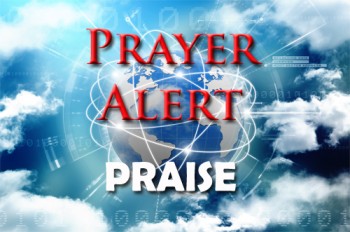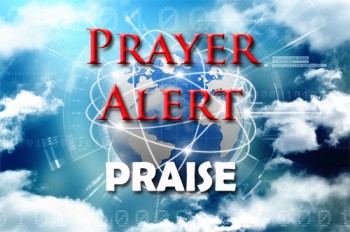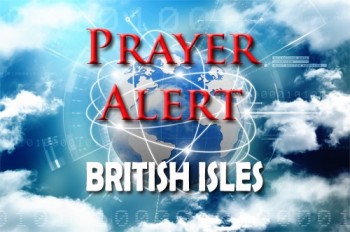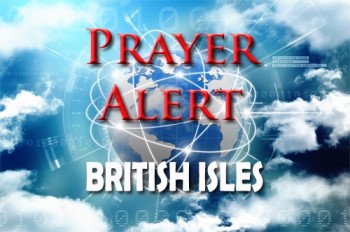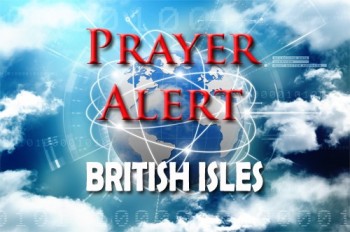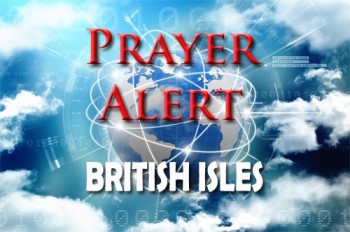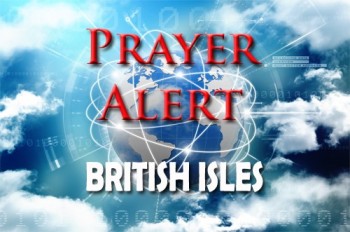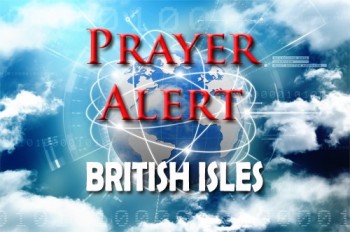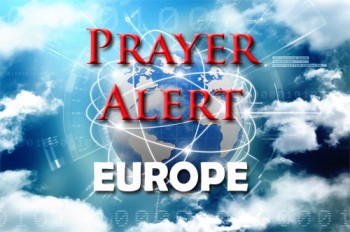
David Fletcher
David Fletcher is Prayer Alert’s Editor.
He is part of a voluntary team who research, proof-read and publish Prayer Alert each week.
If you would like to make a donation towards our running costs, please click here.
Kanye West's Jesus is King album has prompted the American Bible Society to offer 1,000 free Bibles. ABS said that curiosity about Christianity has soared since the US rapper released his first Christian album: ‘When we saw an influential cultural figure like Kanye inspiring young people to seek out answers to their faith questions, that was an opportunity to provide God's word and point people to it as a source for their questions about faith.’ Up to 1,000 copies of the Good News translation are available to fans who apply on the ABS website. According to Google Trends, online searches for ‘Jesus’ and ‘Christianity’ shot up significantly in the USA after West released his album on 25 October.
Ethiopia is unique. It has its own alphabet and cuisine, and the people do not fit in with either sub-Saharan Africa or the Arabised North African peoples. 98% of the people claim some sort of religious affiliation; there is a spiritual hunger among Ethiopians. Whereas 3% were evangelicals in 1970, by 2015 this figure had risen to 19%. They are becoming Christ’s ambassadors to unreached peoples. The Kale Heywet (Word of Life) church supports 250 missionaries, working among 16 people groups. Wycliffe Bible Translators are working with Ethiopians to translate the Old Testament into the language of the Eastern Oromo people, most of whom are Muslim.
On 11 November hundreds were evacuated from Fishlake, when their homes were flooded for the first time in a hundred years. Heavy rain has continued to fall in Yorkshire and the Midlands, flooding more areas. Two hundred army personnel are supporting the flood effort, and hundreds more are working hard to make areas safe. Villagers in Stainforth have been supporting their Fishlake neighbours. A social media appeal brought donations of food, cleaning products, toiletries and clothing from 2,000 people. St Cuthbert's Church is full of clothes and emergency supplies, while rescue workers use it as an operations and command centre. Chalets and caravans have been found for homeless families, and even abandoned animals are being looked after.
Harsh weather linked to climate change will leave hundreds of English churches at risk of destruction or closure this winter, author and activist Bill Bryson has warned. There are 900 churches registered on Historic England's ‘at risk’ list. Mr Bryson, vice-president of the National Churches Trust (NCT), has said it is England's ‘national responsibility’ to protect England's historic places of worship. The NCT received a record 593 applications from churches for maintenance and repair grants last year, but this year the figure leapt by another 37%. Bryson said, ‘Nothing embodies a quintessential Christmas like a historic church in the snow, but winter is when these ancient and often fragile buildings are most at risk of serious damage from severe weather.’
This week has seen examples of political trickery, lies, exaggerations - we thank God for bad practice being exposed. Pray for God’s hand of protection over all who are standing to be elected; some have had horrible threats made against them and their families. The lead up to this general election and the current whirlwind of campaigning feels like being in the middle of a storm. Pray continually for honesty and integrity to be threaded through every wave of political debate and discussion. A lot rides on the outcome, both in terms of the UK’s place in Europe, and potentially Scotland’s place in the UK. Deep emotions are associated with all of this, and it is not surprising that many people are anxious. Pray for unity in the church, families, and friendship groups. In a time of enormous division let us be peacemakers, let us disagree gracefully, and choose our words carefully. May believers rest in the peace of Jesus throughout this election campaign, and may that be a witness to others.
A partnership between Romanian police and Glasgow Airport aimed at tackling human trafficking more effectively has been suspended. Flights between Romania and the UK have been identified as high risk for trafficking. Romanian officers had been travelling to Scotland and London to deal with the ‘high-risk’ flights from their country, as part of a collaboration described in an inspection report as ‘extremely useful’. Inspectors were told as long ago as February that the Scottish arrangement with the Romanian police had been suspended. Staff believed that this was due to the uncertainty caused by Brexit, but the Glasgow safeguarding and modern slavery team was hopeful that it would recommence at some point.
Figures based on safeguarding assessment data from local authorities reported children in England being abused due to belief in witchcraft has risen by 34% in three years. Abuse is driven by believing the child is possessed by demons or the devil. Families experiencing some kind of misfortune, such as parental mental health or experiencing exclusion because of poverty, try to make sense of their experience by believing that a spiritual realm has an impact on what happens here. They treat children as scapegoats for the misfortune that they are experiencing, and by punishing them they believe they are expelling the spiritual evil. Some UK belief-based child abuse is linked to child-trafficking where children are taken through different practices like witchcraft, juju, and black magic to silence them - as a form of control.
A Christian man is calling for more caution from medical and mental health services after undergoing irreversible gender reassignment surgery. His story represents a stark warning to parents, government, and medical and educational services, at a time when figures released by the NHS reveal a 2,500% increase in referrals to gender identity clinics over the past decade. After an appointment with a psychiatrist, despite having suicidal thoughts and mental health issues on his medical records, he was automatically put on a waiting list for gender identity clinic with ‘no underlying medical conditions’. The NHS paid for the operation, which he now deeply regrets, saying, ‘When I see and hear of books such as “10,000 Dresses” being read to schoolchildren, I see the same influence that led me to this harmful addiction. More must be done to protect our children, not to encourage them to pursue the same destructive path that I did.’
A former Blackburn day school and Sunday School built in 1834 to nurture young people will be able to continue its legacy, thanks to the BBC Children in Need annual appeal. At the parish rooms of St Silas Church (with Pudsey Bear among the congregation), Rev Sheelagh Aston quoted Luke 3:11, ‘Whoever has two coats is to share with him who has none’. She threw out the challenge, ‘What if we did give what we had to others?’ Her comments were just one of many as people once again seek to raise money for Children in Need. By clicking the ‘More’ button you can read more about how Children in Need, DIY SOS, and hundreds of volunteers gave their time to come and serve the community and the church.
Italy declared a state of emergency on 14 November after floods brought carnage to Venice. The prime minister described the flooding as 'a blow to the heart of our country'. The government took on 'exceptional powers' to respond to the damage, estimated at hundreds of millions of pounds, including millions in St Mark's Basilica alone. The mayor said the city was 'on its knees', and warned of 'widespread devastation' after an unprecedented combination of high spring tides and a storm surge of a 6ft 2in tide on the night of 13 November. The mayor has blamed climate change for the disaster, but there was also anger among Venetians at the corruption which has held up a flood barrier project.

